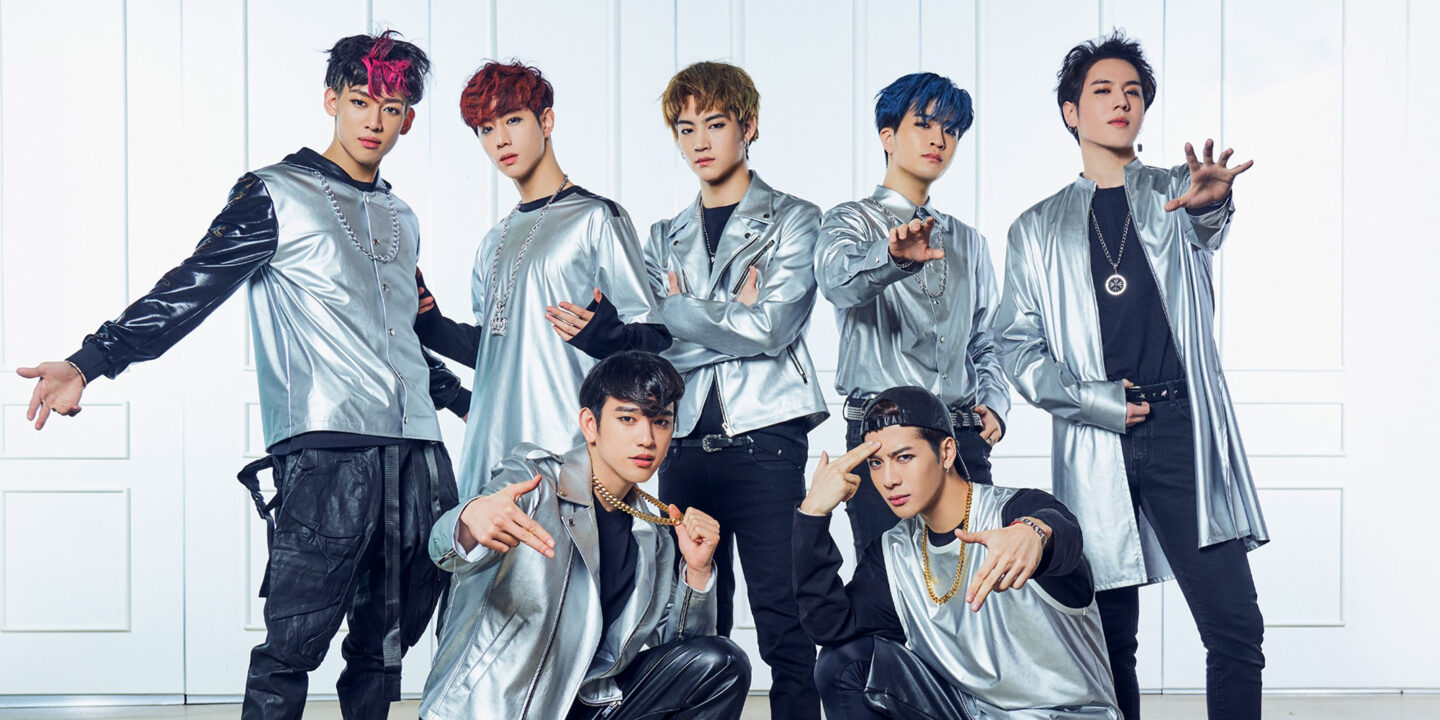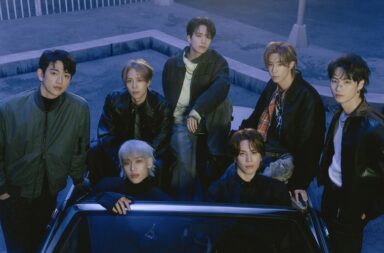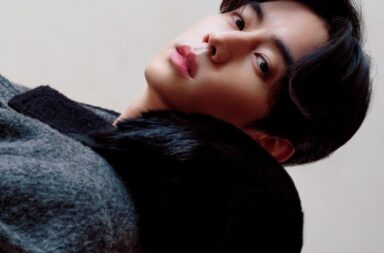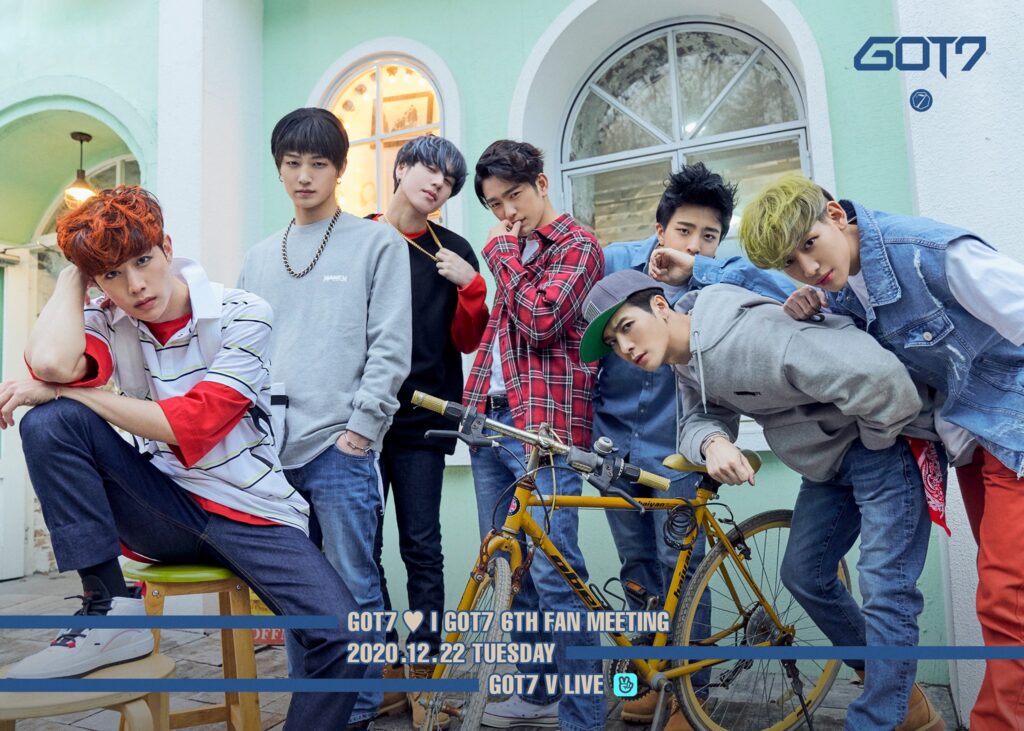
It’s a strange feeling to have followed a group from debut to disbandment. Specifically, to have come across its members as trainees, witnessed their debut, then observed them for seven years while growing with them in parallel, before finally seeing them go their separate ways at the end of an era. It’s a feeling you don’t experience often, and one which reminds you that time is passing, all too quickly.
With the recent news that, after seven years at the company, all seven members of Got7 ended their relationship with JYP Entertainment, anyone who remembers their appearance in the 2013 show, WIN: Who Is Next?, will probably be feeling exactly this. The programme was a YG Entertainment project created to launch their new boy group, and alongside the boys that would go on to become Winner and Ikon, featured trainees from JYP in an episode of friendly competition. Fans now would recognise them as members of Day6 and Got7, but at the time, almost everyone in the competition was a new face.
Full of the fiery drive that every trainee starts out with, the boys performed rap, vocal and dance pieces in front of CEOs and harsh critics Yang Hyun-suk and Park Jin-young, a.k.a. JYP or J. Y. Park. It’s in the dance battle here that we first see a hint of Got7’s fun-loving, comedic character, a trait which would earn them more fans than anything else in the years to come.
While their rivals showcase powerful Jabbawockeez choreography, Jackson, Mark, BamBam and Yugyeom offer up a fun, playful take on Usher’s “Caught Up” instead. Jackson, Mark and Yugyeom run around, hyping up the crowd while BamBam twerks, then they pretend to fight over his cap, before launching into choreography with jaw-dropping acrobatics. Pausing to bob their heads to the music, they grin at the industry moguls in front of them, showing no sign of intimidation.
It’s this kind of plucky spirit, along with their energy, sense of humour, and boyish charm, that has kept the pulse of Got7’s career beating through the years. From their debut with the track, “Girls Girls Girls”, that happened just a few months after this appearance, the group have always boasted a ballsy confidence and straightforwardness, apparent in the way they carry themselves and interact with others. It was this that over time endeared them to global audiences, despite music releases of varying quality, and it’s no overstatement now to say that they are one of the most popular groups of this generation.
As such, it seems appropriate to take some time to look over the past seven years of their career, exploring what got them this far, and what prevented them from getting any farther – notably, the lack of consistent, quality songwriting and a distinct, authentic sound. While they are by far one of the funniest groups out there, pumping out meme after meme such that a standard “Try Not to Laugh” video is over 20 minutes long, their discography is one which, unfortunately, inspires much less joy.
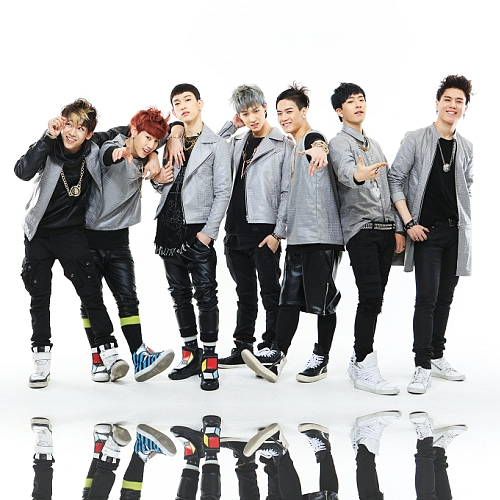
Watching compilations of them cursing, drinking, making sexual innuendos and just generally being college-age boys, you’d think their music might have a similar unfiltered authenticity – the kind of realness which makes their personas so refreshing, compared to your average well-mannered but impassive idol. Instead of the wild, free spirits we see in their vlog and variety appearances though, their discography presents versions that are much more watered down.
Through production and recording performances that try to be what they think audiences will like, they put on acts of coolness, sophistication, or whatever else is called for, on songs that are largely moulded from trends, and which become somewhat hollow as a result. These characters feel contrived, and are much more intent on projecting the kind of perfect poise that pervades modern K-pop than the members’ own day-to-day behaviour suggests. This discrepancy between their artistic and real-life personas means that you could love them as people, and still be unmoved by their music.
Of course, this doesn’t apply to every song, and it also hasn’t always been a problem. At first, Got7’s music expressed exactly the kind of playful roguishness and vibrant youth that they embodied in real life, led by strong songwriting on JYP’s part. “Girls Girls Girls” saw them sing about their playboy tendencies over a chunky, loping hip-hop beat, with a catchy synth melody looping in the background and simple but memorable vocal lines on top. The relaxed swagger and flirtatiousness are quintessential Got7 (who else could have framed their crotch while singing “What’s with my body?” the way Jackson did?).
Meanwhile, “A”, their second single, combined the same brazenness with a feel-good, summery instrumental and incredibly catchy vocal hook. In the MV, they play a bunch of friends chasing a pretty girl that works in their local café. From the way they wave at her with a cheesy “Ayy girl”, to Mark’s hilarious face-off with a middle-aged lady trying to grab the same shampoo – everything feels like they were just being themselves. Both the MV and the song give us Got7 in their most natural state (has Mark ever rapped with more conviction than when he told us to “stop frontin’”?).
Finally, their 2015 magnum opus, “Just Right”, got everything, well, just right. Composed by successful American duo Jackie Boyz among others, the song is their brightest title track to date, with fun rap verses, uplifting melodies, and a cute instrumental with jingling guitars. A single rap verse from this song is more dynamic than most of the rap in the rest of their discography, and that’s just through simple pitch variation. Meanwhile, the MV gives us yet more authentically Got7 scenes, such as Jinyoung stealing a bikini-clad mannequin, and Jackson licking some cream seductively before breaking into dance.
All three releases show us Got7 at their most relaxed and cheerful, and as such reflect their day-to-day dynamic and effervescent chemistry most accurately. They are also simultaneously Got7’s best attempts at the pop genre and most enjoyable songs, period. Looking at the song structures and JYP’s track record, this isn’t all that surprising. Traditionally, for him, simplicity is the name of the game, and all a song really needs is a strong central melody. If the hook is good, then it’s worth repeating as many times as you need (as is the case on all three songs); if not, then all the fancy production techniques in the world won’t make it better.
At least, this was the ethos behind their early music. Over time, the group began to pursue more creative control, more mature concepts to match their age, and updated produrction, to keep up with the synth-heavy, electronic style coming from contemporaries like BTS. Again, this wasn’t unexpected; cuter concepts like “Just Right” were too one-dimensional to repeat over and over, and the trend at the time was for boy groups to start writing their own music, becoming “self-producing” idols. Likewise, JYP songs classically tend to go for simple production and noughties-style hooks, and weaker ones can sound a little old-fashioned and cheesy – something a lot of Got7’s older B-sides suffer from. In order to stay competitive, both JYP and Got7 needed to move with the times.
This change began to happen around 2016, with the Flight Log series of albums. Unfortunately, this is when we started to see a divergence between what Got7 were good at and what they (or their management) thought would sell. While highlights still came through now and again, such as 2018’s vibrant “Lullaby” and 2019’s Charlie-Puth-inspired “You Calling My Name”, the overall quality of their music began to slide into dull, generic, pop territory. At the same time, their concepts became angsty and melodramatic, following general boy group trends, but in ways which were unconvincing or hard to relate to.
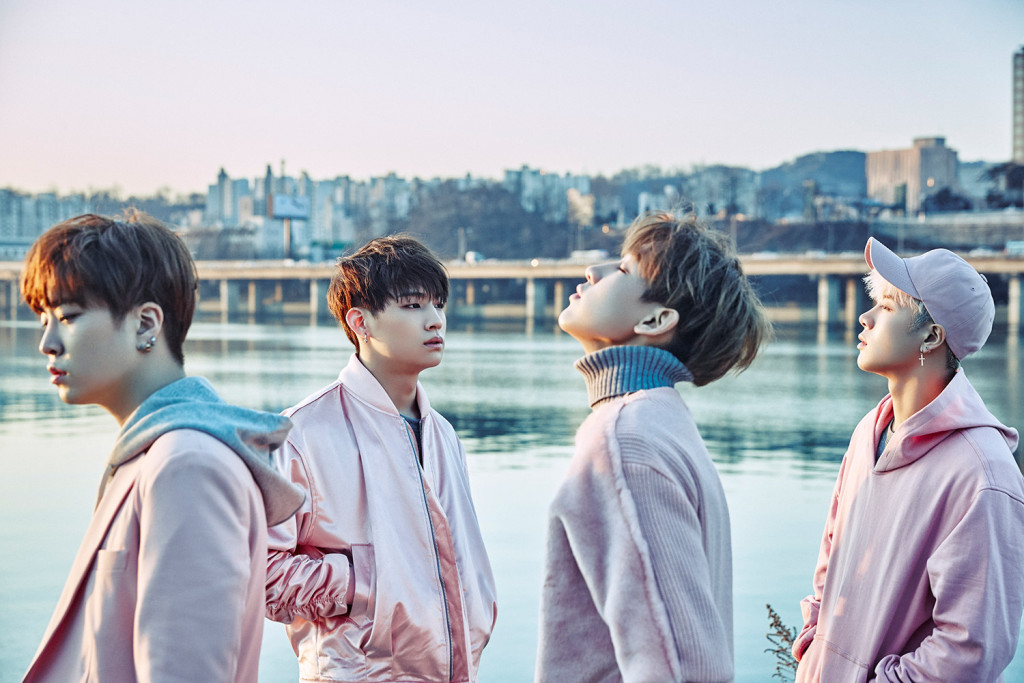
Efforts at imitating modern music resulted in noisy, tinny tracks that complicated arrangements with clumsy, overbearing synths. They were often derived from contemporary genres like future bass, but added little to nothing new of their own. Meanwhile, the central songwriting and melody composition on their songs got worse; many B-sides on Got7’s later albums, such as Present: You, lack any strong hooks to make them memorable. Indeed, there are title tracks in their discography that are more forgettable than even your average K-pop B-side; “Never Ever”, “Look”, “You Are” and “Eclipse” all need multiple listens to make a lasting impression, and they just don’t inspire that.
Whereas songs like “Just Right” and “A” allowed amateur rappers Mark, BamBam and Jackson to flex their strengths and hide their weaknesses, their more serious attempts at rapping exposed what had always been the groups’ Achilles heel (not least because none of them were native Korean speakers). JB, Jinyoung and Youngjae managed to hold down the fort with warm, mellow vocals, but even they struggled to express the kind of raw, emotional vulnerability that these more angsty songs now demanded.
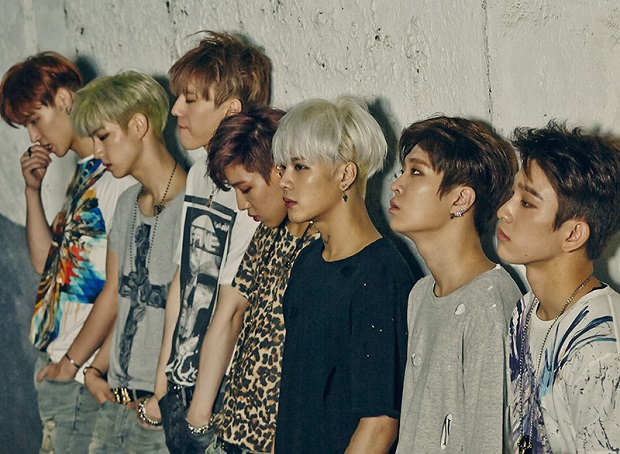
Finally, the erratic nature of the quality, genre, and concepts of their title tracks led to what became a messy dartboard of scattered attempts at the bullseye, instead of a constellation of stars that shine individually but also form a breath-taking bigger picture. That feeling of organic growth is what is most sorely missing from Got7’s post-2015 work, and it is reflected in the digital downloads of their singles; after peaking at “Just Right”, their digital figures slid downwards slowly but surely, even as album sales grew.
What they didn’t seem to realise is that, for boy groups at least, having trendy songs and concepts matters much less than being genuine. Generally speaking, fans become invested in boy groups for their charms and personalities, and when you are that loved, anything that feels even remotely authentic will be eaten up, whether that’s music, vlogs or writing (such as letters and Tweets). After all, it offers a level of intimacy that is both irresistible for fans, and unattainable in real life; over time, it will also attract more casual fans, who upon discovering you and your work, will be able to more easily relate.
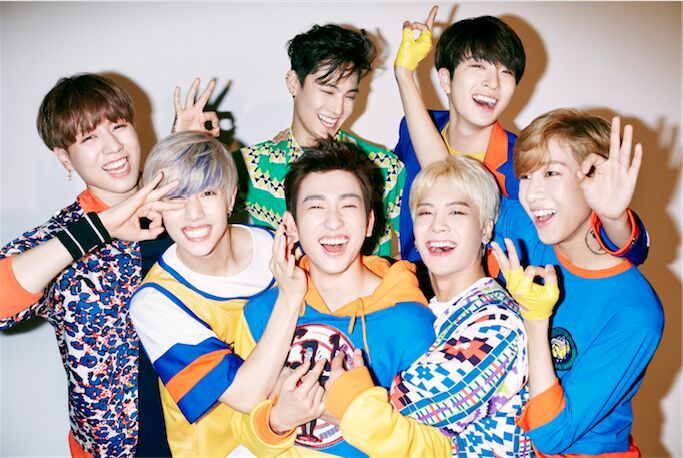
As such, Got7 should have embraced their quirks and sense of humour in their work instead of hiding them, or at least committed more fully to their emotional concepts. They ventured into vulnerable territory with the lyrics on songs like “Eclipse”, but it didn’t extend to delivery through the actual music, and so their messages were accordingly – excuse the pun – eclipsed. It’s something JYP appear to have learned their lesson with for their subsequent boy group, Stray Kids, who from the outset put out self-made music that was a far cry from both classic JYP fare and wider K-pop. Just three years on, that has resulted in them finding their footing with a strong and recognisable sound, whereas even after seven years, you can’t say the same for Got7.
Owing to the fact that both the members and JYP management were involved in the production of these works, whether all this was the result of misguided A&R direction or their own inaptitude for compelling artistic expression is unclear. We can, however, get an idea of where things were misaligning by looking at the solo and unit work of members like JB and Jackson, whose projects purported to be completely under their control.
Within JYP, leader and main songwriter JB was involved with two subunits, a duo with Jinyoung called JJ Project and another with Yugyeom called Jus2. While JJ Project focused on more standard pop and balladry, Jus2’s music was more interesting; the unit released an alternative R&B EP called Focus in 2019, which they wrote in collaboration with other songwriters. Its concept revolved around senses, with songs exploring taste, sight, touch, smell, sound, and the sixth sense. Immediately, the idea was more engaging than most of Got7’s other concepts, but even without this, Focus remains the most interesting, cohesive, mature, and focused album in Got7’s group discography.
On it, both were able to explore their personal interests in genres like alternative R&B and house, forgoing attempts at mass appeal and indulging instead in unapologetically dark, intoxicatingly sensual, dream-like soundscapes, on songs like title track “Focus on Me”. It was an earnest attempt to make a meaningful contribution towards their inspiration genre of R&B, whereas Got7’s later work made no such attempt for pop.
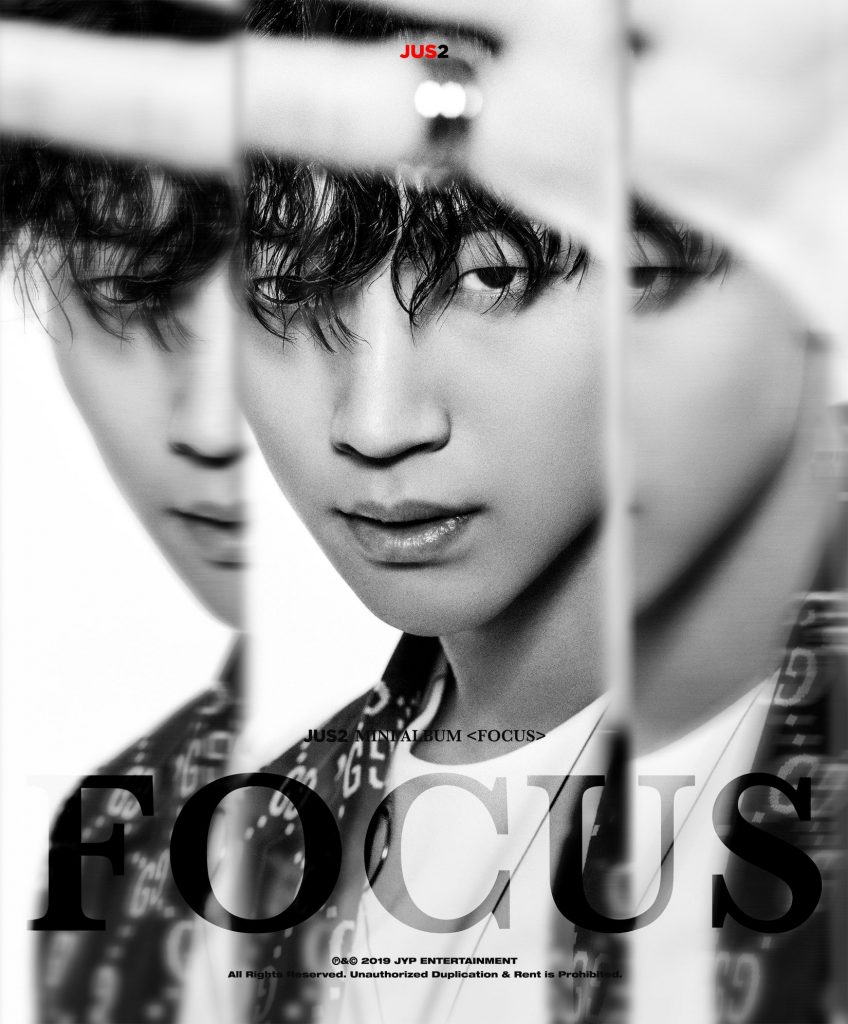
In part, Focus reflected JB’s own penchant for more soulful music, which he explored on solo mixtapes under the name of Defsoul, or Def. Citing R&B icons D’Angelo and Musiq Soulchild as his biggest influences (Soulchild was signed to Def Soul Records), he released five EP-sized projects on SoundCloud between 2016 and 2019, named 1/? Vol. 1 to 5. Here, he told short, personal stories on moody R&B and neo soul tracks, threading songs together with interconnected lyrics and subtle shifts in atmosphere.
In an interview with Billboard, he said: “I love releasing songs as a compact album or mixtape. Each mixtape has its own story and it’s all connected to each other. Parts of my personal stories are inside these mixtapes, so it feels like my own way of expressing myself.” Speaking on Jus2’s album, JB made a similar proposition. “It is important to have an overlying theme for the album,” he explained in an interview with K-pop Herald. “That way, the album has spirit, and the [story and music become] more unique and endearing.”
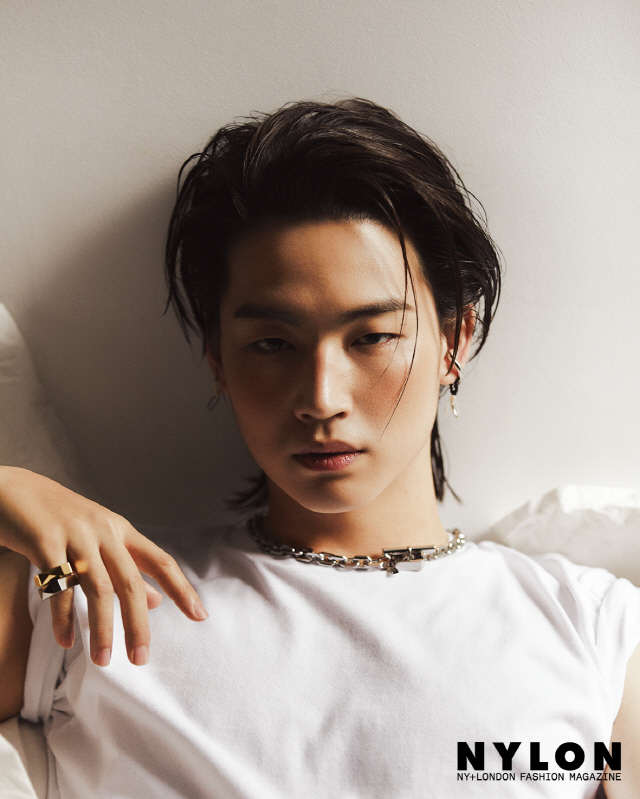
The man therefore clearly has a strong sense of artistic vision when it comes to making music. This assisted him greatly when he was working on projects of his own interests, using musical languages that he was fluent in, but on attempts at more mainstream genres, such as “Look”, “You Are”, and “Eclipse”, it just didn’t feel as natural.
Perhaps that’s not surprising; it’s hard to imagine someone whose idol is a 90’s R&B legend fitting the modern K-pop mould without being forced. Got7’s mainstream position and pressures as a globally popular group presented a catch-22 that forced JB to choose between making mediocre music for the masses and artistically authentic music for few, and while he did his best at the former, the latter was where he shone most.
Here, it’s worth pausing to take a look at Jackson’s solo work instead, which he did under the unusual arrangement of a separate, small company unaffiliated with JYP. Established in 2017, Team Wang is a record label consisting of a small group of individuals, led by Jackson himself, whose sole purpose was to support his activities as a celebrity working in China and a solo artist breaking into the global scene.
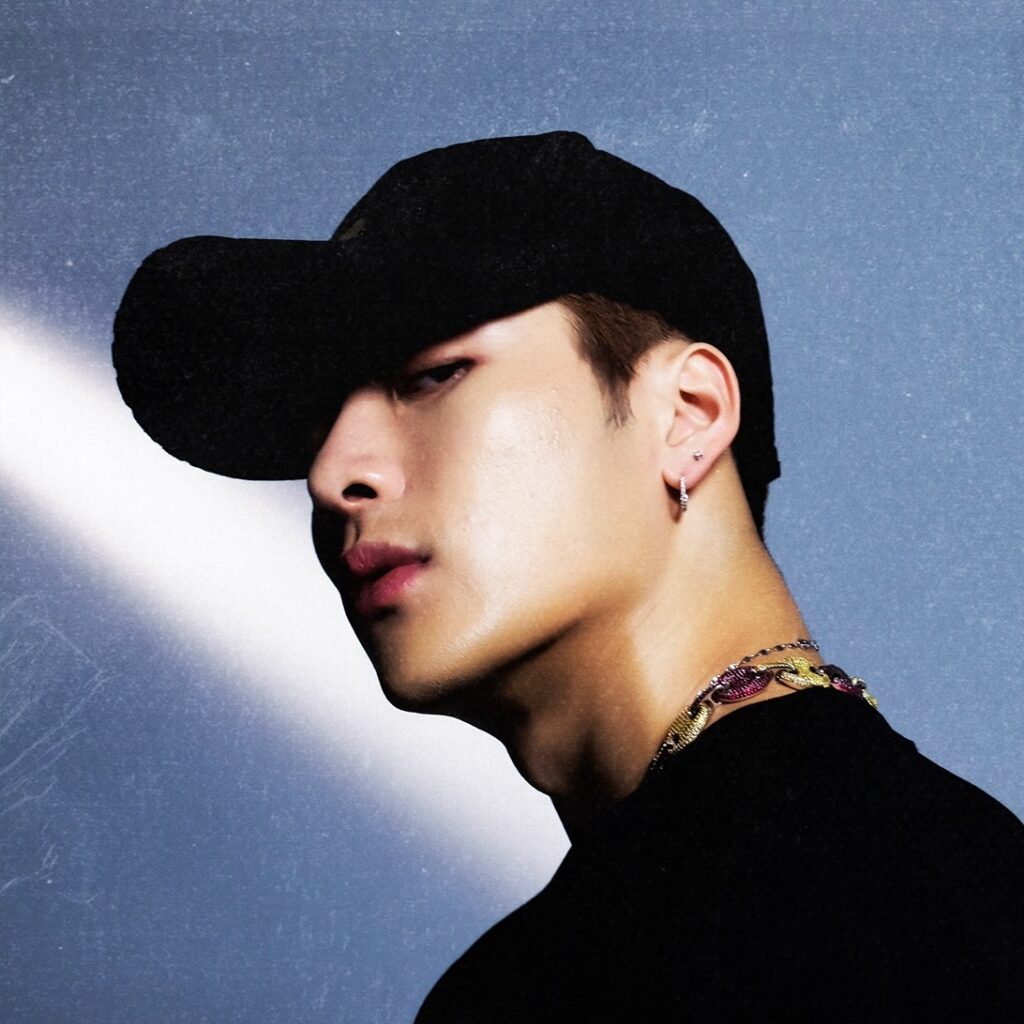
And break into the global scene he did; when it comes to his footing in the international market, as an Asian artist and K-pop alum, there are not many that are treading with the same weight that Jackson is. While his early work, such as the inane “Papillon”, was almost amusingly immature, his growth and character development after that was nothing short of amazing, and within a few short years turned spectators’ amusement to awe.
Benefiting from his fluency in Mandarin and English, as well as complete creative control over every aspect of his work, Jackson experimented on a number of self-written singles between 2017 and 2019, before releasing the studio album, Mirrors. Keeping things short and sweet (most of his songs are between two and three minutes), Mirrors was a 20-minute-long culmination of everything he had experienced musically and personally up until then. In an interview with i-D, he mentioned that he had discovered his “true identity” as an artist on Mirrors by fusing rap, ballads and R&B, saying: “This is the true ‘me’ you’re seeing.”
Mirrors’ first single, “Bullet to the Heart”, was a two-minute, raw expression of pain that addressed his struggle with mental health and compared life’s hardships to a devil-like woman, an “elegant assassin”, who appeared also in a simple but gripping MV directed by Daniel “Cloud” Campos (best known for his work with Panic! At The Disco). With minimal, menacing instrumentation and a simple melody sung hoarsely, the song delivered its titular impact.
His voice had always been husky, and while previously that had led to what felt like a lack of power, he learned to turn it to his advantage, applying it as an expression of vulnerability here and a comical pitifulness on “Pretty Please”. Similarly, of all the members’ outward personalities, his was always the most affable and sincere, and when it came to emotional expression on works like “Bullet to the Heart”, this paid off in the form of immediate audience connection.
Meanwhile, his efforts with hip-hop advanced to a point where he became almost unrecognisable, compared to the unconfident idol rapper of yore. Tracks like “Titanic” and “DWAY!” oozed a relaxed, self-assured ease, from their composition and lyrics, to their MVs and performance, that was not present on earlier attempts like “Papillon”. This resulted in songs that were less contrived and more enjoyable, and overall conveyed a sense of sure-footedness in the way he was taking steps in his career – something missing from Got7’s releases.
He also began to show a talent for catchy, pop-infused toplining, bestowing almost every song with a hook strong enough to justify its short length. The melody of “All I could think about was you” on the moody, Post-Malone-influenced “On the Rocks” takes the song to new heights (literally and figuratively), by lifting you into heady, alcoholic fumes of melancholy that not only turn the tap on your emotions, but let the song soar in concert settings.
Meanwhile, the casual pause between “Rolling” and “Stone” on “DWAY!” is the perfect example of Jackson’s taste for negative space. His toplines have both room to breathe and a push-and-pull suspense, which helps his songs progress effortlessly instead of trudging, while also encouraging you to sing along. In contrast, many of Got7’s toplines, such as on B-sides like “Enough”, overstuff every section with blocky rap and ambiguous melodies, which bombard the ears but amount to very little.
Jackson’s growing credibility earned him a distribution deal with 88rising, a respected American collective representing Asian artists on a global scale. Working with them, he was able to boost his visibility to Western audiences in 2019 through a number of high-profile collaborations with hip-hop contemporaries such as Joji, Higher Brothers, and Rich Brian. In particular, his collaboration with Joji, Swae Lee and Major Lazer, “Walking”, earned him his first position on US pop radio charts, peaking at #39.
This paved the way for his later success with the 2020 single, “100 Ways”, a dark but thoroughly catchy pop-EDM number that doubled its impact with a stunning MV inspired by ancient Chinese mythology (again directed by Campos). Two months after the song’s release, Jackson became the first Chinese solo artist ever to break the US radio top 40, and two months after that, “100 Ways” peaked at #24. To date, the only K-pop groups that have achieved the same milestone are BTS, Black Pink, Monsta X and Loona.
What’s most impressive about Jackson’s work is not necessarily the music itself, or even his shocking improvement over the years; it’s the breadth and depth of his vision, combined with his dedication to bringing that vision to life. He demonstrates this repeatedly, through not only his music, but his storytelling (the MVs are based on his ideas), attention to detail (matching the sharp precision of notoriously intricate choreography by The Kinjaz, for example), insanely packed schedule (he’s been living multiple lives as a K-pop idol, Chinese celebrity, international artist and business owner since 2017), and the spread of his creative pursuits (he started out as an Olympic-level fencer and recently launched a fashion label).
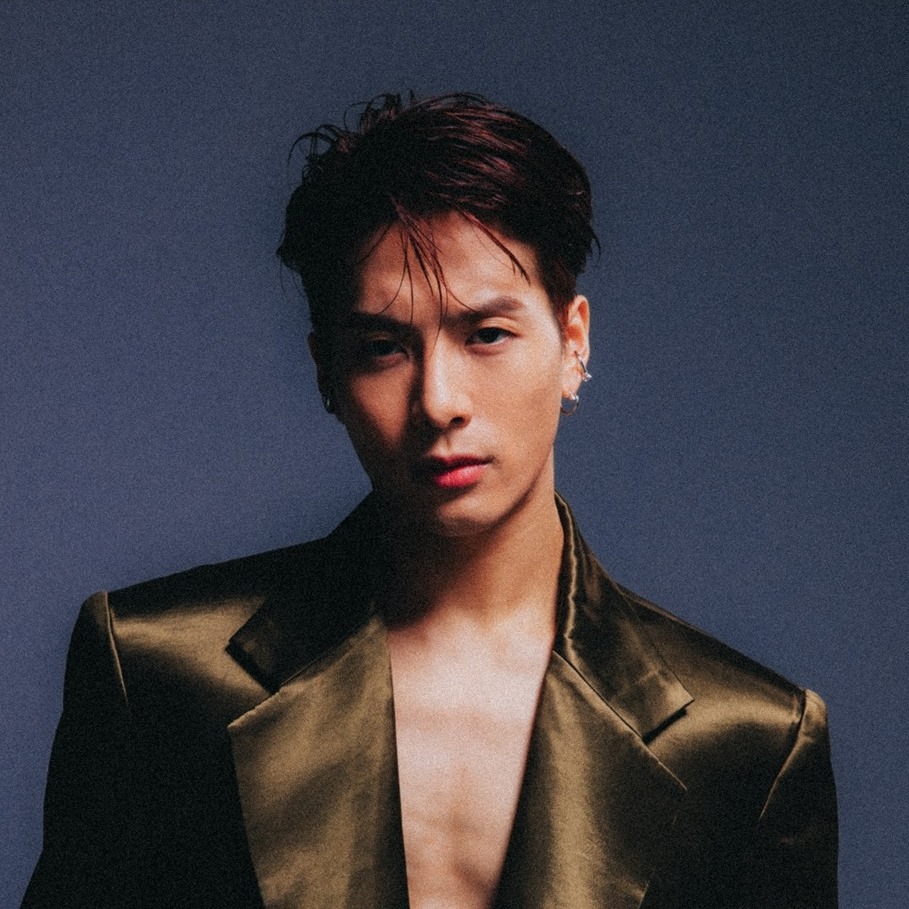
This deep-rooted passion for and commitment to an overarching vision are what he shares with JB, and what makes their best work compelling. In interviews, snapshots of Jackson’s vision are everywhere; he “[chooses] his vision”, his music, over money; “the vision is different” when he does work he loves every day; his fashion label isn’t just a brand, it’s “more of a vision or spirit”.
Where Jackson excels over JB is in his ability to combine ample toplining talent with emotional expression. Laying his heart out like an open book, Jackson lavishes songs with a sincerity that makes them warm and human, delivered through toplines that are impactful and memorable. JB’s toplines are often vague and inconclusive, and his work generally has more of a guarded complexity that desaturates its emotional colour and makes it harder to understand. While you could describe their differences as the polarity between simplicity and sophistication, the simple fact is that Jackson’s colour is more vibrant – dazzlingly so – and it’s this that sets him up for global mainstream success.
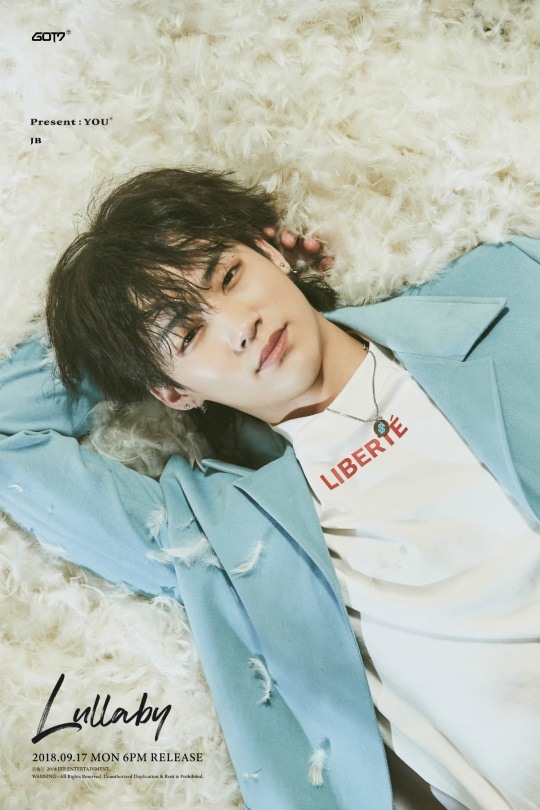
This being said, it’s worth remembering that, until now, JB has been working within the walls of JYP, whereas Jackson has had a head start in working with artistic freedom. As JB moves on to a career as a solo artist, we could see him develop more fully into the R&B virtuoso he’s always wanted to be, and in doing so, he could attract his own organic underground following. His mainstream relevance might fade as a result, but such superficial popularity would become unnecessary anyway, if he was making music true to him.
More generally, if Got7 ever reunites (which seems likely, given they described their departure from JYP as a new beginning), it’s uplifting to imagine what they will sound like, free of strict management and K-pop’s boundaries. So far, while Yugyeom, Jinyoung, Youngjae, Mark and BamBam have all contributed to songs on Got7’s albums, JB and Jackson are the members who, through the sheer volume and exploratory nature of their work, have demonstrated the most passion for music and sense of artistic vision. As such, their creativity defines Got7’s present work most strongly – JB as the most influential songwriter within the group, and Jackson as the most promising without.
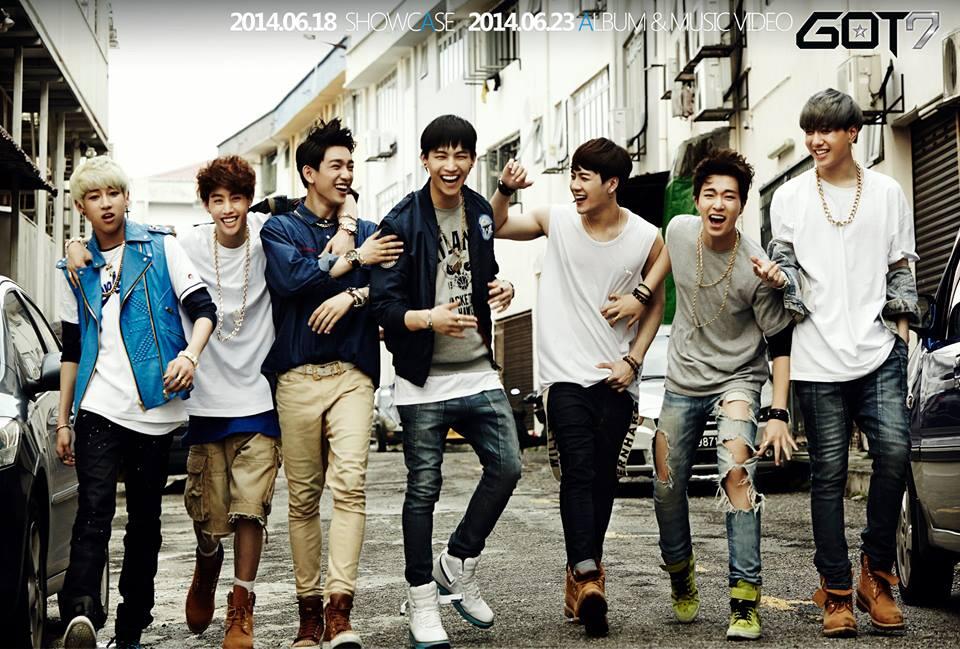
Together, they represent the best of the group’s current potential, both as soloists, and – if they can find a way to bridge all seven members’ styles while leaving the dregs of their history behind – spearheads of the group’s future identity. That said, all of the members have committed to growing their solo music careers, and any of them could surprise us with their development. That has already shown itself to a degree with the members’ self-written songs on their latest album, Breath of Love: Last Piece, which is a marked improvement on previous releases. If the members can continue this improvement over the next few years, then there may well be hope for Got7’s music yet.
(YouTube [1][2][3], Gaon Chart, Yonhap News Agency, K-pop Herald, Bling, Billboard [1][2][3][4], i-D, Elite Daily, Forbes, Headline Planet, Teen Vogue [1][2][3], Vogue. Lyrics via JYP Entertainment, Team Wang. Images via JYP Entertainment, Nylon, Team Wang.)
